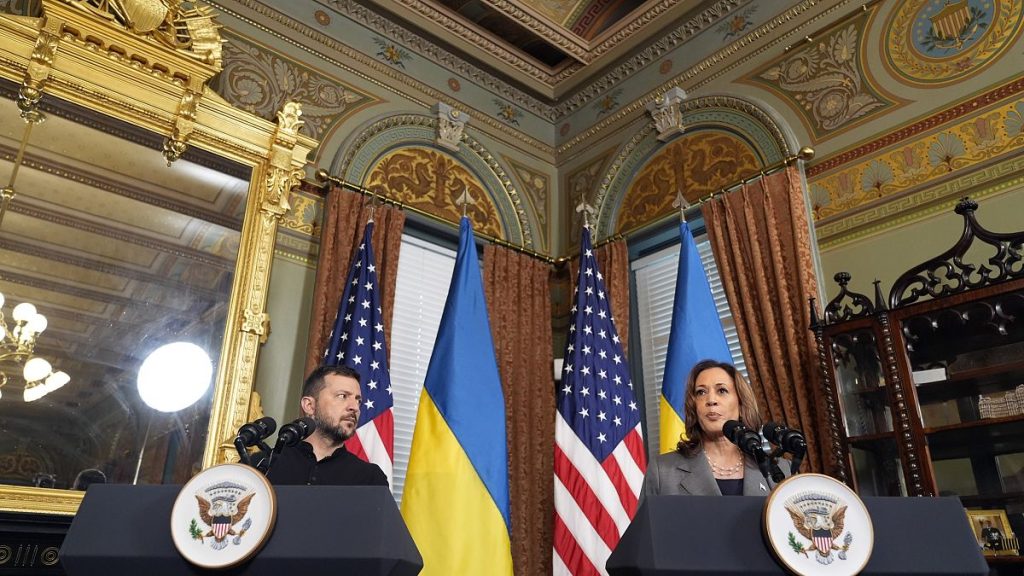US Vice President Kamala Harris strongly criticized the idea of Ukraine ceding territory to Russia for the sake of peace, labeling such proposals as “dangerous and unacceptable.” Her remarks, made alongside Ukrainian President Volodymyr Zelenskyy, were seen as a veiled criticism of Republican candidate Donald Trump’s approach to the conflict. Harris emphasized the importance of not forcing Ukraine to give up its sovereignty and security relationships for peace. This highlights the high stakes of the war effort in the upcoming election, especially given Trump’s previous criticisms of US assistance to Ukraine and his friendly stance towards Russian President Vladimir Putin.
Trump, on the other hand, rejected Harris’ criticisms and claimed that his goal is to end the “horror show” of the war. When asked about whether Ukraine should give up territory, he responded vaguely, saying “we’ll see what happens” and emphasizing the need for peace. Zelenskyy, who was in Washington to present his plans for ending the war, stressed the importance of achieving a lasting and just peace for Ukraine. He called for maintaining strong sanctions against Russia and bringing Russian war criminals to justice. However, no progress was evident on his request to use long-range Western weapons to strike deeper targets inside Russian territory.
During President Zelenskyy’s visit, President Biden announced increased military support for Ukraine, including funds for missiles, drones, ammunition, and other supplies. This comes as the EU Council President Charles Michel urged China to reconsider its support for Russia and ensure the United Nations Charter is respected. Michel emphasized the EU’s commitment to supporting Ukraine for as long as necessary, in line with the principles of freedom, solidarity, and global peace. Zelenskyy’s efforts to improve Ukraine’s battlefield capabilities and increase negotiating leverage underscore the ongoing struggle for peace in the region.
The statements by Vice President Harris and President Zelenskyy reflect the complex dynamics at play in the conflict between Ukraine and Russia. Harris’ strong rejection of proposals to cede territory underscores the importance of upholding Ukraine’s sovereignty and security, even in the pursuit of peace. Zelenskyy’s call for justice for Russian war criminals and his push for increased military capabilities highlight the urgent need for a resolution to the conflict that respects Ukrainian interests and maintains pressure on Russia.
President Trump’s ambiguous responses to questions about Ukraine’s territorial integrity and his focus on achieving peace highlight the differing approaches to resolving the conflict. The announcement of increased US military support for Ukraine and calls from EU leaders for China to support peace efforts demonstrate the international community’s commitment to addressing the crisis in Ukraine. As the situation continues to evolve, the actions of political leaders and the support of allies will play a crucial role in determining the future of the conflict and the prospects for a lasting peace in the region.


